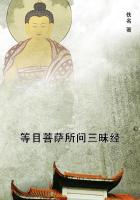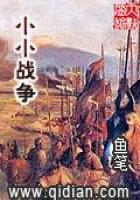One was the superior virtue of a life devoted to purely religious contemplation, and for the same end that animated the existence of fakirs and sofis. It was to escape the contaminating influence of matter, to rise above the wants of the body, to exterminate animal passions and appetites, to hide from a world which luxury corrupted. The Christian recluses were thus led to bury themselves in cells among the mountains and deserts, in dreary and uncomfortable caverns, in isolated retreats far from the habitation of men,--yea, among wild beasts, clothing themselves in their skins and eating their food, in order to commune with God more effectually, and propitiate His favor. Their thoughts were diverted from the miseries which they ought to have alleviated and the ignorance which they ought to have removed, and were concentrated upon themselves, not upon their relatives and neighbors. The cries of suffering humanity were disregarded in a vain attempt to practise doubtful virtues. How much good those pious recluses might have done, had their piety taken a more practical form! What missionaries they might have made, what self-denying laborers in the field of active philanthropy, what noble teachers to the poor and miserable! The conversion of the world to Christianity did not enter into their minds so much as the desire to swell the number of their communities. They only aimed at a dreamy pietism,--at best their own individual salvation, rather than the salvation of others. Instead of reaching to the beatific vision, they became ignorant, narrow, and visionary; and, when learned, they fought for words and not for things. They were advocates of subtile and metaphysical distinctions in theology, rather than of those practical duties and simple faith which primitive Christianity enjoined. Monastic life, no less than the schools of Alexandria, was influential in creating a divinity which gave as great authority to dogmas that are the result of intellectual deductions, as those based on direct and original declarations. And these deductions were often gloomy, and colored by the fears which were inseparable from a belief in divine wrath rather than divine love. The genius of monasticism, ancient and modern, is the propitiation of the Divinity who seeks to punish rather than to forgive. It invented Purgatory, to escape the awful burnings of an everlasting hell of physical sufferings. It pervaded the whole theology of the Middle Ages, filling hamlet and convent alike with an atmosphere of fear and wrath, and creating a cruel spiritual despotism. The recluse, isolated and lonely, consumed himself with phantoms, fancied devils, and "chimeras dire." He could not escape from himself, although he might fly from society. As a means of grace he sought voluntary solitary confinement, without nutritious food or proper protection from the heat and cold, clad in a sheepskin filled with dirt and vermin.
What life could be more antagonistic to enlightened reason? What mistake more fatal to everything like self-improvement, culture, knowledge, happiness? And all for what? To strive after an impossible perfection, or the solution of insoluble questions, or the favor of a Deity whose attributes he misunderstood.
But this unnatural, unwise retirement was not the worst evil in the life of a primitive monk, with all its dreamy contemplation and silent despair. It was accompanied with the most painful austerities,--self-inflicted scourgings, lacerations, dire privations, to propitiate an angry deity, or to bring the body into a state which would be insensible to pain, or to exorcise passions which the imaginations inflamed. All this was based on penance,--self-expiation,--which entered so largely into the theogonies of the East, and which gave a gloomy form to the piety of the Middle Ages. This error was among the first to kindle the fiery protests of Luther. The repudiation of this error, and of its logical sequences, was one of the causes of the Reformation. This error cast its dismal shadow on the common life of the Middle Ages. You cannot penetrate the spirit of those centuries without a painful recognition of almost universal darkness and despair. How gloomy was a Gothic church before the eleventh century, with its dark and heavy crypt, its narrow windows, its massive pillars, its low roof, its cold, damp pavement, as if men went into that church to hide themselves and sing mournful songs,--the Dies Irae of monastic fear!
But the primitive monks, with all their lofty self-sacrifices and efforts for holy meditation, towards the middle of the fourth century, as their number increased from the anarchies and miseries of a falling empire, became quarrelsome, sometimes turbulent, and generally fierce and fanatical. They had to be governed. They needed some master mind to control them, and confine them to their religious duties. Then arose Basil, a great scholar, and accustomed to civilized life in the schools of Athens and Constantinople, who gave rules and laws to the monks, gathered them into communities and discouraged social isolation, knowing that the demons had more power over men when they were alone and idle.
This Basil was an extraordinary man. His ancestors were honorable and wealthy. He moved in the highest circle of social life, like Chrysostom. He was educated in the most famous schools. He travelled extensively like other young men of rank. His tutor was the celebrated Libanius, the greatest rhetorician of the day. He exhausted Antioch, Caesarea, and Constantinople, and completed his studies at Athens, where he formed a famous friendship with Gregory Nazianzen, which was as warm and devoted as that between Cicero and Atticus: these young men were the talk and admiration of Athens.















